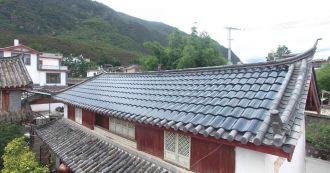As energy resources become increasingly scarce, fully harnessing solar power generation can significantly reduce reliance on traditional energy sources. During the construction process, many buildings have installed solar tiles on their rooftops. However, to meet the demands of photovoltaic power generation, the selection of appropriate rooftop solar tiles is a critical consideration. In practice, what criteria should be used when selecting solar tiles?To get brand praise, panel solar flexible It is necessary to have the spirit of constantly improving the quality of products, but also to have a bunch of eternal heart fire. https://www.csrenewable.com/
What are some of the criteria when choosing a solar tile for the rooftop
1.Selecting High-Quality and Durable Solar Tiles
Since photovoltaic power generation relies on solar energy, and the modules are installed outdoors, the quality of the selected solar tiles is of utmost importance. On one hand, the photovoltaic panels themselves need to be long-lasting and possess relatively high strength and impact resistance. For example, after installation, they should be able to withstand the demands of extreme weather conditions, such as hail, strong winds, without sustaining any damage. On the other hand, they should have a relatively long service life. If the panels are frequently damaged or require repair, it will inevitably affect their normal use.
2.Choosing Aesthetically Pleasing and Healthy Solar Tiles
As solar tiles are installed on rooftops, their coordination with the overall building architecture must be considered. The selected solar tiles should not appear too obtrusive or visually disruptive. Additionally, health factors should also be taken into account. After installation, they should not affect normal drainage and ventilation, as that could lead to the growth of bacteria. The photovoltaic panels from Beijing Changsun are produced using a display-grade etching process, resulting in a visually appealing and textured appearance. During the construction process, a multi-layer structure is utilized to maintain ventilation, drainage, and dryness between the building itself and the photovoltaic panels. This ensures that photovoltaic power generation is not only efficient but also environmentally friendly and healthier for the building’s occupants.